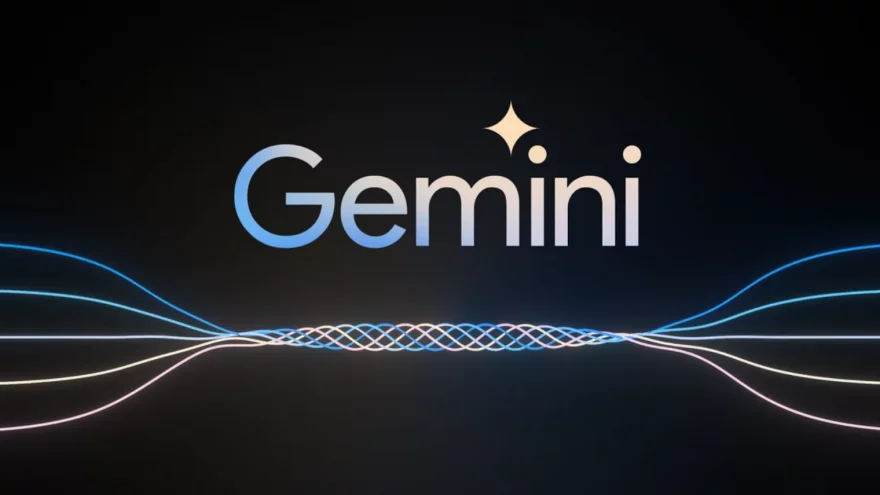Google Gemini
This is not something relevant, it is something historical. The million dollar question: What is Google Gemini? How does it work?
The deployment of Google Gemini marks a momentous milestone in the field of artificial intelligence.
Google Gemini will not only lead this new stage, but also surpass the standards previously established.
This new model, meticulously developed by Google, not only represents a natural evolution of existing technology, but redefines possibilities and opportunities of artificial intelligence.
Let's first watch a video to give context to what we are facing:
-
What is Google Gemini?
Unlike conventional apps and chatbots, Gemini is not limited to being a superficial interface; is a comprehensive artificial intelligence model that seeks to redefine the user experience by gradually replace PaLM in the Google Bard ecosystem. This translates into a competitive advantage over other AIs with Gemini's multimodality.
This transition is not only a technological update, but a qualitative leap that promises to significantly improve the efficiency and quality of responses.
2. Features and highlights
What sets Google Gemini apart is its multimodal approach, a step forward in understanding and processing information. It is not limited only to the text; has the unique ability to understand and process images, audio, and programming code. Yes, we are going to repeat it. Understand and process images, audio and programming code. This versatility positions it as an incredibly flexible model, capable of adapting to various data modalities and contexts with great ease.
At the heart of Gemini lies a design that distinguishes it from other artificial intelligence models. Unlike traditional approaches, Gemini was conceived from its early stages of development as an already multimodal model. This unique methodology has managed to integrate different modalities of information, whether text, drawings in real time or even the ability to relate objects and suggest songs in real time. Amazing right?
A highlight of Gemini is the introduction of its new code generation system, AlphaCode2. This system not only improves understanding of complex mathematics, but also reinforces theoretical understanding of computer science. These improvements translate into more precise and reliable responses, reducing possible errors that could occur in previous models.
3. Differences from Google Gemini
In terms of performance, Gemini has proven its supremacy by outperforming its competitors in key tests. This achievement includes a notable advance over OpenAI and its GPT-4. Gemini's ability to excel in evaluations and tests suggests a trajectory in the artificial intelligence landscape with a lot of potential.
With three different versions, Gemini Ultra, Pro and Elder brother, Google seeks to address diverse needs and capabilities in different users. While Ultra is presented as the most advanced and multimodal version, Pro offers intermediate capabilities and Nano is designed for devices with limited resources, even allowing its direct implementation on mobile phones without a constant connection.
Although Gemini Nano may seem less powerful in comparison with its competitors, its ability to be implemented directly on the device represents a significant revolution. This local deployment eliminates the need for a constant connection to a server, providing a more autonomous and efficient AI experience.
Compared to OpenAI's GPT model, Gemini Ultra emerges as the direct competitor of GPT-4, surpassing it in current tests.
Gemini Pro, on the other hand, rivals GPT 3.5, the model present in free ChatGPT. As for Gemini Nano, its uniqueness lies in being an innovation that does not yet have a direct equivalent in the OpenAI offering.
4. When will I be able to use Google Gemini
The deployment of the different versions of Gemini will take place in a staggered manner in the coming months. Gemini Pro has already begun to integrate into Google Bard and will be available in English in more than 180 countries, temporarily excluding Europe, where its arrival is expected in the coming months.
Looking ahead, Google has ambitious plans for Gemini. The launch of Bard Advance, an improved version of Google Bard that will integrate Gemini Ultra, is anticipated. Although the exact dates are not yet confirmed, this development is expected to take place next year, marking a new era in interaction with virtual assistants.
In addition to Google Bard, Gemini will be integrated into other Google services and applications, including the search engine, Google Ads, Duet AI and Google Chrome among others. Gemini is expected to span a variety of platforms, totally transforming the way we interact with artificial intelligence.
From December 13, 2023, Developers have begun to have access to Gemini Pro through the API in Google AI Studio or Vertex AI, opening new possibilities for the exploration and application of this advanced artificial intelligence technology.
In short, Google Gemini not only represents a significant advance in artificial intelligence technology, but also anticipates a fundamental change in the way we interact with these advanced tools. Its multimodal capability, comprehensive design, and application versatility position it as a constantly evolving leader in the dynamic artificial intelligence landscape. With Gemini, the future of artificial intelligence is increasingly taking a more interesting route and our uCloud specialists have already been able to test and make the first Demos. And you, what are you waiting for to know more?





